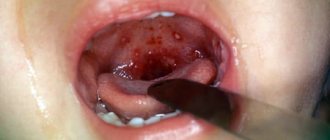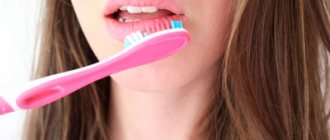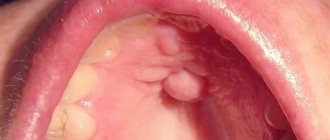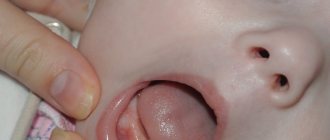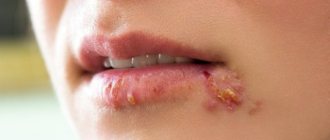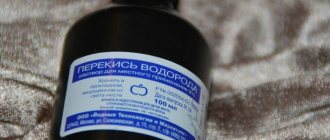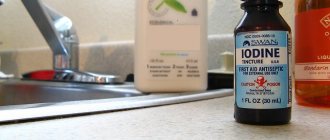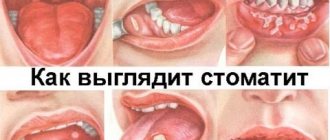Fighting burns
Wounds are treated by rinsing with herbal decoctions, for example, calendula (1 teaspoon of raw material per glass of water). For local anesthesia of ulcers, gels and ointments are used - Metrogyl Denta, Cholisal. Before applying the drug, the palate is treated with a warm solution or water. Aloe juice is used to accelerate tissue regeneration. To do this, remove the skin from the plant and apply the cut to the damaged areas.
In case of a chemical burn, the mouth is washed with copious amounts of clean water. After this, immediately contact a medical facility or call an ambulance.
Finding out the reasons
With proper care, the skin of your lips should be smooth, soft and even. If the skin peels off your lips, you need to find out the root cause and take certain actions accordingly.
The main reasons that the skin of the lips is not in the best condition are:
- Lack of vitamins. If peeling lips bothers you exclusively in winter and spring, most likely it is a vitamin deficiency. In this case, a course of vitamins will help solve the problem. Vitamins A and E are best.
- Weather . Wind and cold air are not the best for sensitive lip skin. The situation is aggravated by water, which in most Russian cities is characterized by increased hardness.
- Health problems . Sometimes the reasons why the skin on the lips comes off can be very serious. This may indicate the presence of diabetes, oral disease or herpes (in this case, small blisters appear on the skin).
- Dehydration of the body. Sometimes the reason is a simple lack of water. Every day it is necessary to maintain water balance in the body by drinking at least 1.5-2 liters of water, but not everyone follows this rule.
The oral mucosa peels off
When the mucous membrane in the oral cavity peels off, this means that stomatitis has begun. It manifests itself, as already mentioned, in different forms. Sometimes the mucous membrane can peel off due to nerves.
- You can often find stomatitis in students, they are nervous, their immunity is weakened, there is constant moral stress, especially during the session, and the result is stomatitis in this form too.
- The mucous membrane can peel off as a result of a chemical burn or simply hot tea. A chemical burn also includes a burn with an alcohol-containing liquid, such as vodka. In large doses and low-quality alcohol leads to burns of the mucous membrane.
- Well, the last reason is gastrointestinal diseases; in fact, this type of stomatitis is much more common.
How to treat this disease? Dentists advise consulting a doctor if the mucous membrane suddenly begins to peel off. This symptom indicates that there are problems with the stomach and the disease needs to be treated at the root. The doctor will prescribe treatment after examination.
- Well, if a chemical burn occurs, then you can simply lubricate the affected areas with retinol oil, that is, an oil solution of vitamin A. This composition quickly regenerates the skin
- If immunity is reduced, then you need to take immunomodulatory drugs, vitamins and sedatives. Rinse your mouth with antiseptics and lubricate with an oil composition.
In general, when treating diseases of the oral cavity, immunomodulating agents should be used, since the body is already weakened by the disease and needs to be helped to recover.
How to get your lip skin in perfect condition: care rules
To keep the skin on your lips in perfect condition, follow these care rules:
- Use chapstick or balm regularly throughout the day. The lip product must be of good quality, because... Cheap balms will not save the situation, but will only worsen the problem. They contain a silicone base, and you need an oil-based balm, for example, Bodyshop with shea butter.
- Use a lip scrub several times a week. Prepare it by mixing a couple of tablespoons of olive oil with a spoon of sugar, add a little thick honey, apply on your lips and massage with light movements. A good option among ready-made products is lip scrub from Lush.
- Before going to bed, apply a thick layer of nourishing, rich cream to your lips, such as Nivea cream or baby cream. You can apply Aevit vitamins to your lips; they come in a convenient format of small capsules and cost only about 30 rubles. One capsule is ideal for one application.
- Review your habits. Don't lick your lips and stop smoking at least for a while. Drink less coffee, black tea and drink more clean water.
- Enrich your diet with vitamins. Eat more greens, fatty fish rich in omega-3 (such as salmon, salmon or trout), vegetables, legumes.
We suggest you familiarize yourself with the inflammation of the palate of the mouth near the teeth, how to treat it.
If in your case the skin on your lips is peeling off not due to any disease, then the above recommendations will definitely help restore your lips, making them soft and attractive. If the causes are more serious and associated with diseases, you should consult a doctor.
Salivary gland stones
Stones can form in the salivary glands and block the flow of saliva into the mouth. These stones can develop in the salivary glands under your tongue or in the salivary glands on the sides of your mouth.
People with salivary gland stones may experience pain or swelling in the mouth that comes and goes. It's not clear what exactly causes stones to form, although some factors may put you at higher risk:
- dehydration;
- certain medications, such as blood pressure medications and antihistamines;
- restricted nutrition, which may result in less saliva production.
What can a doctor do?
Since diseases of the oral mucosa are different, the doctor will, of course, first prescribe the necessary tests. In general, by looking at the mucous membrane, he will be able to approximately determine for what exact reason the disease occurred. He will be guided by zones, since in a person’s mouth there are zones responsible for the internal organs. If inflammation occurs in any of the zones, the doctor immediately makes the first diagnosis and, based on it, prescribes tests and, if necessary, an x-ray of the internal organs.
- Blisters
- Painful plaque
- Peeling skin with mucous membranes.
If one of these diseases suddenly appears and is located in a certain area, it means that there are problems with the internal organs and if they are not eliminated, then the disease itself will be difficult to cure.
Treatment
What to do if the roof of your mouth hurts? Therapy is developed for each patient according to an individual scheme: it all depends on his sensitivity to drugs and the symptoms accompanying the disease.
Cancer is treated only under the supervision of a specialist. Home therapy methods and folk remedies will be useless in this case. A dentist gives a referral to an oncologist if he finds suspicious lumps in the oral cavity and other symptoms of cancer. If we are talking about a pathogen of an infectious nature, then the treatment regimen is drawn up depending on the type of microorganism that provoked the problem.
Treatment of infection
Folk remedies are well suited for disinfecting affected areas. If the hard palate is very painful, then anesthetics are used in the form of a spray - Lidocaine, Benzocaine or Hexoral. Another type of medication used for severe pain is anti-inflammatory drugs. Preference is given to medications in the form of an ointment or gel - Cholisal, Lidochlor, Kamistad.
We invite you to familiarize yourself with Stomatitis: is the disease contagious, and how to deal with it?
Symptoms of a disease of viral etiology are eliminated with oxolinic, viferon or nystatin ointment. For this purpose, the drugs Fluconazole, Acyclovir, Diflucan are suitable. Stomatitis resulting from injury to the mucous membranes is treated with antiseptic sprays: Tantum Verde, Propasol, Bioparox. This is necessary to prevent the development of secondary infection.
The tissues on the roof of the mouth react acutely to the spread of bacterial flora. Therefore, when you feel pain, it is necessary to analyze the factors that may cause the disease.
At the first signs of discomfort in the mouth, you can use traditional medicine:
- Onion peel. The peel of one onion is filled with water in a ratio of 3 tbsp. l. for 500 ml of water. The mixture is placed on low heat, and after boiling, it is infused for 8 hours. Rinse the mouth with the broth filtered through a sieve 2-3 times a day. The product helps relieve irritation of the mucous membranes.
- Horse sorrel decoction: 100 g of crushed roots of the plant are poured with a liter of water. The mixture is boiled for 15 minutes and left to cool. Rinsing the mouth is carried out after the decoction has completely cooled.
- Plantain leaves. It is preferable to use a natural ingredient in powder form. This drug can be purchased at a pharmacy or made independently: 2 tbsp. l. Pour a glass of boiling water over chopped plantain and leave for 15 minutes. After cooling, the tincture is used to rinse the mouth after each meal. Plantain relieves swelling of the mucous membranes well.
- A mixture of onions and Kalanchoe. The plant juice has an analgesic effect. When preparing the medicine, take 1 tbsp. l. juice of each plant, dilute it with 3 tbsp. l. water and mix thoroughly.
Inflammation of the mucous membrane due to injury
Tongue piercings are fashionable these days. Young people endure excruciating pain for several days while their tongue heals. But you need to know one nuance. Before you go to have this operation, you need to carry out a complete sanitation of your mouth, this is just before the visit to the cosmetologist. But a week before the operation, you need to prepare the body for stress and do this with the help of vitamins and minerals. We need to strengthen our immunity.
Since a piercing or traumatic object will penetrate deeply into the tongue and, moreover, pierce it through and through, at this very moment the body will experience a “nervous breakdown,” so to speak. After this, rejection of the object may begin, glossitis will begin, and even an abscess. It is the preparatory procedures that will prevent the body from becoming too nervous. Or better yet, avoid piercing altogether.
In general, piercing will cause a lot of trouble to its owner, and in particular, frequent injuries to the oral cavity will occur. As you can see, there are many different factors that can lead to inflammation of the oral mucosa.
To prevent stomatitis in any form from tormenting, you need to do simple preventive procedures, namely:
- Brush your teeth twice a day. Not only use a brush, but also dental floss, as well as mouthwash; of course, the procedure is complicated and long, but all bacteria leave the mouth completely
- Rinsing your mouth after every meal
- Food should be healthy, there is no need to eat fast food leading to gastrointestinal diseases
- No smoking
- Drink alcoholic drinks in small doses
- Take vitamins and immunomodulators
Biting or chewing the buccal mucosa.
Cheek biting
- a bad habit, more common in mentally unbalanced people. Chronic trauma to the mucous membrane leads to a hyperplastic reaction with the formation of white plaques of irregular shape, sometimes lines or stripes. With continued trauma, an increase in plaque, the appearance of erythema and ulceration are noted.
Chewing the buccal mucosa
observed at any age, regardless of race and gender of patients. Persons with this bad habit usually chew the mucous membrane of the anterior cheek, and less often, the lips. The diagnosis is based on the clinical picture and history. Despite the fact that the injured mucosa is usually not prone to malignant degeneration, patients should be warned about the changes to which it undergoes.
The differential diagnosis should include spotted leukoplakia and candidiasis, given the similarity of changes in the mucous membrane caused by chewing with these diseases. Histological examination reveals areas of both normal and wrinkled epithelium with signs of parakeratosis and mild subepithelial inflammation.
Causes of pain
Pain in the palate occurs due to external and internal factors. External causes include irritation of the oral mucosa by chemical and thermal factors. Minor microdamages lead to inflammation of the palate, as they create an ideal environment for the proliferation of pathogenic flora. Dentists identify several main causes of the problem.
We invite you to familiarize yourself with 10 effective remedies available to everyone: what to rinse with after wisdom tooth removal?
Causes
There are many different reasons that can lead to the mucous membrane in the mouth beginning to peel off. Although most are considered harmless, the discomfort and pain caused as a result of this condition can be unbearable. Most often, the lining of the mouth will heal on its own, but if it doesn't, you'll need to see a dentist for effective treatment.
Reaction to toothpaste
Sometimes the mucous membrane begins to peel off after brushing your teeth. One reason for this is a mild allergic or irritant reaction to toothpaste. Most mouth rinses contain a small percentage of alcohol. It has been found that continuous use of such rinses can lead to infections such as ulcers and even oral cancer.
Listerine is the most popular alcohol mouthwash. Therefore, it should be used only as prescribed by a doctor, as it can improve gingivitis and even help heal gum disease. You must understand that this rinse is very strong and should not be used too often. Otherwise, the alcohol in it can cause a burn to the oral mucosa and lead to its detachment. To avoid this, you can dilute Listerine with water before use. The alcohol in Listerine has been found to have the following effects:
- dries out mouth and lips
- influences test results
- leads to tissue separation in the mouth
First of all, you should change the toothpaste that presumably causes your allergy. Try another one and notice if there is improvement or if the peeling persists.
If after a week the mucous membrane continues to peel even after changing toothpaste, you need to visit the dentist as soon as possible. Or you can use fluoride toothpaste to help strengthen your mouth.
Autoimmune disorder
It is often the case that detachment of the mucous membrane in the mouth occurs as a result of an autoimmune disorder. As a result of the body attacking healthy cells, ulcers form on the mucous membrane in the mouth. Examples of such autoimmune disorders are:
- Pemphigus is an unusual, sometimes fatal disease that causes blisters in the mouth.
- Bullous pemphigoid is a less dangerous disease in which the blisters are itchy, hard and dense. The skin between the blisters is red and possibly swollen.
- Dermatitis herpetiformis is a chronic inflammatory disease caused by sensitivity or allergy to gluten.
According to the American Autoimmune Disease Association, such disorders affect up to 15% of millions of people. These are chronic conditions for which there is no cure yet. However, therapy involves attempting to control and reduce severe symptoms. The following measures will help alleviate the disease:
- Balanced diet
- Regular exercise
- Enough time to rest
- Moderate amounts of vitamin supplements
- Reducing excessive sun exposure
- Drug therapy (often hormonal)
Stevens-Johnson syndrome
Stevens-Johnson syndrome is a rare but serious disease that affects the skin and mucous membranes. It is usually caused by an adverse reaction to certain medications. It is also possible that the syndrome is caused by an infection.
The disease begins with flu-like symptoms, accompanied by a red rash that spreads throughout the body and forms blisters. The damaged parts will eventually die and begin to peel off. You should consult a doctor as soon as possible, as this disease requires serious treatment. Therapy is mainly aimed at identifying the underlying cause, controlling symptoms and preventing future complications.
People with Stevens-Johnson syndrome often experience symptoms such as:
- General malaise
- Severe headaches
- Joint pain
- Fever
- Cough
Some time after the first symptoms appear, a rash may appear inside the mouth, which can lead to the death of tissue in the mucous membrane and cause it to peel off. The rash usually looks like a target - darker in the center and lighter on the outside. If you brush your teeth at this stage of the disease, it can cause blisters and ulcers to develop, which, when ruptured, leave painful sores. The lining of your mouth may blister, making it painful to swallow, or you may develop a more serious problem such as dehydration.
Early treatment of this condition is recommended. Otherwise, symptoms may worsen and lead to a life-threatening infection. Your doctor will refer you to the intensive care unit or burn unit for close monitoring and treatment.
Treatment will include:
- Strong analgesics to relieve pain in moist areas of the skin and mucous membranes.
- Skin moisturizing. This can be an air filter or using a liquid.
- Replacement of fluid loss. These are liquid and tablet preparations containing nutrients that help repair damaged mucous membranes in the mouth.
- A general antibiotic if an infection is detected during a blood test.
- Mouth rinses containing an anesthetic may be prescribed to numb the mouth and make swallowing easier.
Overzealous or careless brushing of teeth
If you apply a lot of force while brushing your teeth, there is a possibility that the bristles of the toothpaste will damage the mucous membrane of the mouth and lead to its peeling.
If you stop brushing for a while or are as careful as possible, the flaking may stop, but if it doesn't, you need to see your dentist as soon as possible. You should also avoid eating acidic foods as they can aggravate the situation.
Stomatitis
Stomatitis is an inflammation of the oral mucosa. This is a painful condition that is accompanied by redness, swelling and sometimes bleeding. When swelling occurs, the expansion and contraction of the mucosa causes it to peel off. Typically inflammation is the result of:
- Poor oral hygiene
- Burns from hot foods and drinks
- A medical condition that affects the entire body.
- Allergic reaction
Most often, stomatitis occurs in children. If you notice that your child has inflammation in the mouth, you need to visit a pediatrician who will examine him, determine the real cause of the inflammation and prescribe treatment in a timely manner, which will help avoid the spread of the inflammatory process to other parts of the body.
Depending on what causes canker sores, it may or may not be contagious. Herpetic stomatitis in children is considered contagious. Infection can occur through kissing or playing in close contact with each other.
Treatment of stomatitis is based on treating the underlying cause of the infection. The fundamental factor in the treatment of stomatitis is avoidance of the causative factor. You also need to do the following:
- Maintain good oral hygiene by brushing your teeth regularly
- Avoid spicy foods (especially for children)
- You should choose your toothpaste carefully to avoid an allergic reaction.
Psoriasis on the oral mucosa
Psoriasis mainly affects the trunk and limbs, but can also develop on the mucous membrane of the mouth, including the tongue, lips, and cause peeling. The Journal of Dermatological Case Reports reports that the condition most often appears as red patches and peeling on the lips and then spreads to other areas of the body.
If you find that the mucous membrane in your mouth is peeling, contact your dentist, who will conduct a qualified diagnosis and determine the actual cause of the damage. It must be determined that the lesions are due to psoriasis and not other health problems for treatment to be effective.
According to the European Journal of General Dentistry, oral psoriasis can appear as widespread lesions on the tongue, yellow or red spots, a whitish area or translucent plaques. With this form of psoriasis, sores may appear on the roof of the mouth (the top of the mouth), the inside of the cheek, or the lips. Often the disease affects the gums. Visit your dentist to avoid spreading the infection to other parts of the body.
If you notice the following symptoms, psoriasis is most likely the cause of the flaking of the mucous membrane in your mouth:
- Red spots with white borders
- Redness of the mucous membrane in the mouth
- Detachment of mucous membrane on the gums
- Mouth ulcers
Once your doctor performs a biopsy to make a definitive diagnosis, he or she will be able to prescribe treatment, which may include topical corticosteroids or oral medications to control your body's autoimmune response.
Preventive actions
Most often, dental diseases arise due to improper actions of the person himself. The problem is caused by thermal and chemical burns, as well as bad habits. Prevention of swelling of the soft tissues of the mouth includes:
- timely treatment of dental problems;
- avoidance of too hot and spicy foods;
- washing vegetables and fruits,
- refusal to consume crackers and chips;
- careful handling of chemicals;
- careful hygiene of the oral cavity, including the tongue;
- consumption of vitamins during the off-season;
- prevention of infection of the oral mucosa.
Parents should have a preventive conversation with their children about not sharing bottles, utensils, etc. with other people. At the first signs of inflammation, you should contact your dentist or use antiseptic mouthwash and treat the affected areas.
Palate hurts
More often, pain in the palate occurs due to injury. People drink hot tea or coffee and don’t even notice how I injure the mucous membrane. Yes, in this part of the mouth, the skin is very thin and delicate; it can be damaged even by hard food. After the injury, a day or two passes, and pain begins, as bacteria got into the wound, and a slight ulceration resulted. Treatment of the oral cavity in this place, in general, is not difficult. It is necessary to rinse with medicinal tea and lubricate with an oil solution of vitamin A.
Damage to the oral mucosa can also occur simply due to too much love for tangerines or oranges. Minor ulcerations may also occur if there are too many seeds. In general, it is harmful to eat seeds the way many people are used to. They cannot be chewed with your teeth; they must be cleaned with your hands, only in this case there will be no problems with either inflammation of the mouth or the appendix.
If the defeat occurs for these very reasons, then you need to reduce the consumption of sour foods and sour fruits. Stop eating the seeds and start rinsing your mouth with antiseptic solutions, and you can also use retinol ointment, apply it only to the affected areas in a thin layer.
Stages of plaque formation
Plaque on teeth is often a reason to give up bad habits. Quitting smoking and drinking alcohol helps a lot in the fight against deposits on enamel. It is very important to review your diet, add fiber, reduce the amount of coffee and soda. Solid vegetables and fruits allow you to clean your teeth naturally.
It is extremely important to brush your teeth at least twice a day. Fluoride-containing pastes will be the most useful. To fully protect your teeth from plaque, you need to pay attention to the interdental space.
- Stage one lasts 4 hours after brushing the teeth. During this period, the remaining bacteria multiply and spread throughout the oral cavity. After 4 hours, the number of microorganisms in the mouth is approximately 1 million.
- Stage two lasts from 4 to 7 hours. During this period, the number of bacteria actively increases and reaches 10 million. Microorganisms, mainly streptococci and lactobacilli, attach to the enamel, forming a thin, soft coating. The acids that these bacteria produce negatively affect the enamel. This is how tooth decay begins.
- Stage three begins at 7 o'clock. Plaque becomes noticeable and its final structure is formed: anaerobic bacteria that do not require oxygen.
It is saliva, or rather the microbes in it, that helps plaque thicken and harden. Soft turns into hard through the process of mineralization. In most people, tartar forms near the mouth of the salivary ducts. Such stones begin to put pressure on the gingival grooves, irritating them, which interferes with the normal metabolism between saliva and tissues. This leads to damage to the enamel, inflammation of the gums develops, and pathology penetrates into the deeper layers.
Preventing plaque requires professional hygiene, which only a dentist can provide. If you try to remove tartar yourself, you can injure soft tissues and enamel.

